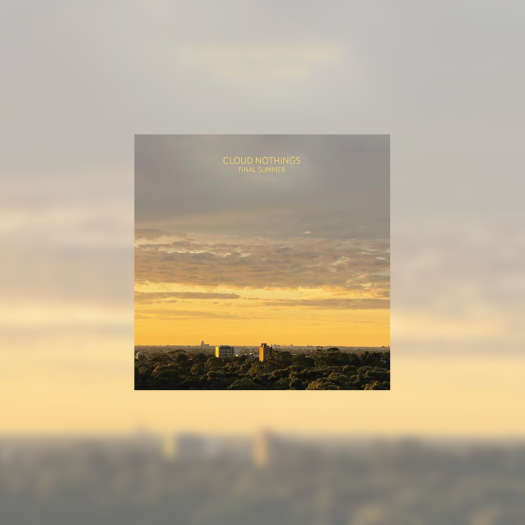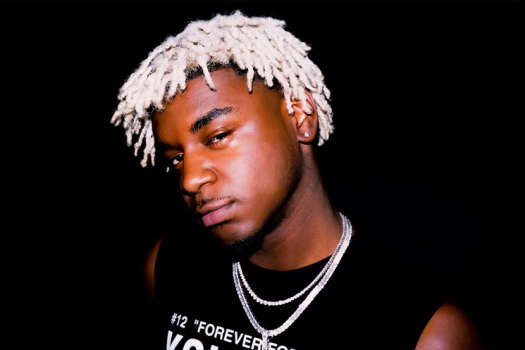Rage Against the Machine is an anomaly in the desolate wasteland that is popular culture - a band composed of diverse ethnic backgrounds (black, white, Chicano), fiercely subversive political agendas (advocating class warfare and supporting lefty cause celebre like Mumia Abu-Jamal, Leonard Peltier and Mexican revolutionaries the Zapatistas), and a band whose music is as incendiary, riot-inducing and controversial as it is infectious. Yet somehow they've managed to balance critical acclaim with huge commercial success. It has been eight years since the emergence of these fathers of the rap-metal-rock movement, and it has been three years since their last album,Evil Empire . That album had neither the impact of their 1992 self-titled debut, nor the broad appeal, but it still enjoyed impressive commercial success while focusing on topics closer to the heart of the band and exploring a darker musical slant.
While R.A.T.M. may have disappeared from the spotlight following the release of Evil Empire and its subsequent touring, they haven't been totally silent. Playing the 1999 version of Woodstock was a warning shot that Rage was ready to return, and all hell is going to break loose when their latest release, The Battle of Los Angeles, drops in November. While it doesn't redefine the band or their music, The Battle of Los Angeles is vintage R.A.T.M, including the hip-hop rhythms of Brad Wilk (drums), the bottom-thumping bass of Tim Bob, the inventive guitar noise and mammoth rock riffs of guitarist Tom Morello, and the lyrical fervour that only vocalist Zach De La Rocha can bring to the proceedings. Yet, musically, The Battle For Los Angeles contains some explorations and different emotional contexts than previous R.A.T.M. fare.
"I'm extremely happy and proud of this record," says a promo weary Wilk, from the posh surroundings of their Toronto hotel room. "Musically it is more dynamic than our previous two records, it is more intense, but on the other hand you can hear the subtleties we were trying to bring out. I think we captured the essence of our live show on this record."
Tom Morello, guaranteed inductee into the guitar players Hall of Fame, agrees. "Whether or not it sells, I think it is our best record by far, it is the record I enjoy head and shoulders above the others. It is our heaviest record, and probably our funkiest record. The only game plan going into this was that if we were going to do this, we were going to make the best R.A.T.M. record, not just another R.A.T.M. record.
"With the first album, we wrote all the songs in the first five weeks that we knew each other," Morello continues. "There was a creative explosion, we made a record and went on tour forever. The second record was much more of a process, both musically and personally. We had grown apart, and to find a common ground to make a record that we would be very proud of, and would incorporate all our beliefs, was very painstaking. I think we did that with Evil Empire and I'm very proud of it. With this one there was much more solidarity."
Commercial success spawns imitation, and the sincerest form of flattery has given rise not only to legions of bands stealing Rage's musical ideas while disregarding the politics, but also spearheaded a whole movement. Love it or loathe it, rap-metal isn't going anywhere anytime soon. Bands like Korn and Limp Bizkit sell millions, reaping what Rage had sown, but Morello is reflective, rather than vindictive about it.
"Imagine the shock at the success of R.A.T.M. - none more than from ourselves. When we put this band together, we had almost every conceivable element of commercial suicide in it: It was a multi-ethnic band, which means you couldn't get played on anyone's radio station, urban or suburban; there was hip-hop and hard rock, sort of these hardcore elements; and then it was blended with these radical politics. We thought it would be difficult for us just to get shows, and now there is an entire genre - politics notwithstanding. It is unbelievable. I've got nothing against those other bands, I think there is a healthy energy to it and they really connect to their audience."
While Morello seems to be in a forgiving mood, bassist Tim Bob is more blunt and less understanding. "I look at those bands, and yes they have a similar style to what we have because it is rock and it has a hip-hop element to it, but that is where all the similarities end. I put us in a class with Public Enemy, the Clash, Disposable Heroes of Hiphoprisy, Midnight Oil, MC 5 - more political bands. That's the difference. There is a huge difference between [Evil Empire 's] 'People of the Sun' and [Limp Bizkit's] 'Nookie' - it is like there is no comparison," Bob sighs. "I'm flattered that people think of us when they hear these bands. I'm also a little irritated, but if it wasn't for these other bands, this wouldn't be considered a movement like it is right now, this rock-rap hybrid. We wouldn't be in the position that we are in, which is, this is the best time for Rage Against the Machine to put out a record. The musical climate is saying 'Please put out a record,' and that feels good."
"We don't hide the politics of Rage Against the Machine very well," Morello says. "I think [music and politics] are interwoven and that it makes each stronger. Hopefully, the politics don't become a dry lecture, because the music underneath it is compelling in and of itself, and the music, its passion is fuelled in large measure because it means something more than rock and roll all night and party everyday, or I hate myself - two other legitimate reasons to rock."
Being a band with a message (political or otherwise) can be an extremely frustrating affair, especially when your music attracts just as many, if not more, apathetic fans than it does people who will take the time to absorb the messages, even if they are being screamed over a frenetic beat. "Killing In the Name Of" may not reach beyond its screamed chorus, "Fuck you, I won't do what you tell me," but no one in R.A.T.M. is worried that their politics are turning people off from the music; if they get both, great. If the kids just want to rock, so be it.
"It's just like being a teacher," comments Wilk. "When a teacher goes into a classroom, he deals with three types of students. There are the ones who already may know what is going on and are there to have that information confirmed. The second is there for the social interaction with other kids and isn't going to get anything out of what is being taught. The other is the one isn't there to learn, but then realises that there is something to be learned and wants to seek out that information. For the teacher that is the most important moment, if the teacher is in it for education, when it clicks with that person. Just like a Rage show, there are people who are there who are reconfirming what they believe with what we say, you're going to have the kid who comes just for the music and doesn't care about the message, and that's fine with us. Then you're going to have the kid who is there for the music, but realises that there is something beyond the music. To start that process of thought is a huge moment for R.A.T.M."
While R.A.T.M. may have disappeared from the spotlight following the release of Evil Empire and its subsequent touring, they haven't been totally silent. Playing the 1999 version of Woodstock was a warning shot that Rage was ready to return, and all hell is going to break loose when their latest release, The Battle of Los Angeles, drops in November. While it doesn't redefine the band or their music, The Battle of Los Angeles is vintage R.A.T.M, including the hip-hop rhythms of Brad Wilk (drums), the bottom-thumping bass of Tim Bob, the inventive guitar noise and mammoth rock riffs of guitarist Tom Morello, and the lyrical fervour that only vocalist Zach De La Rocha can bring to the proceedings. Yet, musically, The Battle For Los Angeles contains some explorations and different emotional contexts than previous R.A.T.M. fare.
"I'm extremely happy and proud of this record," says a promo weary Wilk, from the posh surroundings of their Toronto hotel room. "Musically it is more dynamic than our previous two records, it is more intense, but on the other hand you can hear the subtleties we were trying to bring out. I think we captured the essence of our live show on this record."
Tom Morello, guaranteed inductee into the guitar players Hall of Fame, agrees. "Whether or not it sells, I think it is our best record by far, it is the record I enjoy head and shoulders above the others. It is our heaviest record, and probably our funkiest record. The only game plan going into this was that if we were going to do this, we were going to make the best R.A.T.M. record, not just another R.A.T.M. record.
"With the first album, we wrote all the songs in the first five weeks that we knew each other," Morello continues. "There was a creative explosion, we made a record and went on tour forever. The second record was much more of a process, both musically and personally. We had grown apart, and to find a common ground to make a record that we would be very proud of, and would incorporate all our beliefs, was very painstaking. I think we did that with Evil Empire and I'm very proud of it. With this one there was much more solidarity."
Commercial success spawns imitation, and the sincerest form of flattery has given rise not only to legions of bands stealing Rage's musical ideas while disregarding the politics, but also spearheaded a whole movement. Love it or loathe it, rap-metal isn't going anywhere anytime soon. Bands like Korn and Limp Bizkit sell millions, reaping what Rage had sown, but Morello is reflective, rather than vindictive about it.
"Imagine the shock at the success of R.A.T.M. - none more than from ourselves. When we put this band together, we had almost every conceivable element of commercial suicide in it: It was a multi-ethnic band, which means you couldn't get played on anyone's radio station, urban or suburban; there was hip-hop and hard rock, sort of these hardcore elements; and then it was blended with these radical politics. We thought it would be difficult for us just to get shows, and now there is an entire genre - politics notwithstanding. It is unbelievable. I've got nothing against those other bands, I think there is a healthy energy to it and they really connect to their audience."
While Morello seems to be in a forgiving mood, bassist Tim Bob is more blunt and less understanding. "I look at those bands, and yes they have a similar style to what we have because it is rock and it has a hip-hop element to it, but that is where all the similarities end. I put us in a class with Public Enemy, the Clash, Disposable Heroes of Hiphoprisy, Midnight Oil, MC 5 - more political bands. That's the difference. There is a huge difference between [Evil Empire 's] 'People of the Sun' and [Limp Bizkit's] 'Nookie' - it is like there is no comparison," Bob sighs. "I'm flattered that people think of us when they hear these bands. I'm also a little irritated, but if it wasn't for these other bands, this wouldn't be considered a movement like it is right now, this rock-rap hybrid. We wouldn't be in the position that we are in, which is, this is the best time for Rage Against the Machine to put out a record. The musical climate is saying 'Please put out a record,' and that feels good."
"We don't hide the politics of Rage Against the Machine very well," Morello says. "I think [music and politics] are interwoven and that it makes each stronger. Hopefully, the politics don't become a dry lecture, because the music underneath it is compelling in and of itself, and the music, its passion is fuelled in large measure because it means something more than rock and roll all night and party everyday, or I hate myself - two other legitimate reasons to rock."
Being a band with a message (political or otherwise) can be an extremely frustrating affair, especially when your music attracts just as many, if not more, apathetic fans than it does people who will take the time to absorb the messages, even if they are being screamed over a frenetic beat. "Killing In the Name Of" may not reach beyond its screamed chorus, "Fuck you, I won't do what you tell me," but no one in R.A.T.M. is worried that their politics are turning people off from the music; if they get both, great. If the kids just want to rock, so be it.
"It's just like being a teacher," comments Wilk. "When a teacher goes into a classroom, he deals with three types of students. There are the ones who already may know what is going on and are there to have that information confirmed. The second is there for the social interaction with other kids and isn't going to get anything out of what is being taught. The other is the one isn't there to learn, but then realises that there is something to be learned and wants to seek out that information. For the teacher that is the most important moment, if the teacher is in it for education, when it clicks with that person. Just like a Rage show, there are people who are there who are reconfirming what they believe with what we say, you're going to have the kid who comes just for the music and doesn't care about the message, and that's fine with us. Then you're going to have the kid who is there for the music, but realises that there is something beyond the music. To start that process of thought is a huge moment for R.A.T.M."




